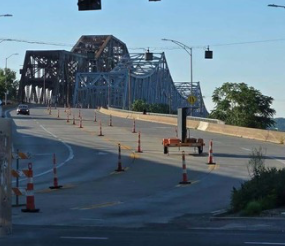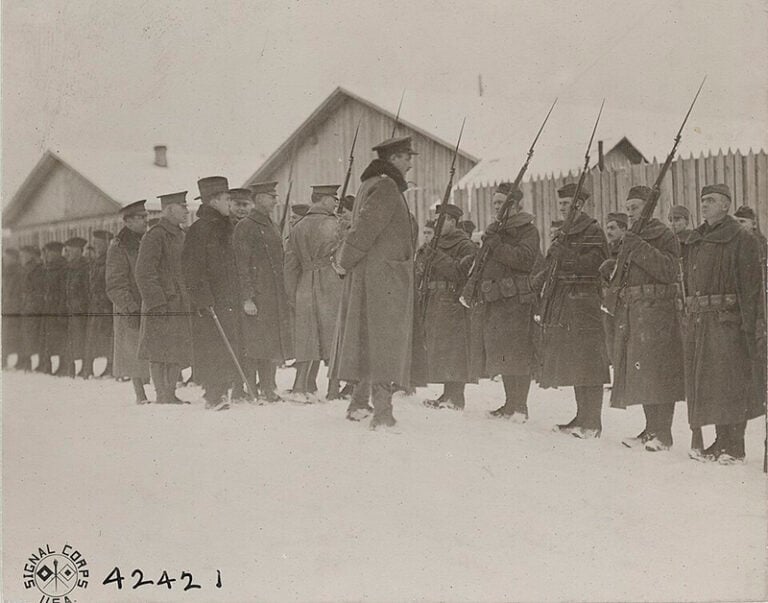By Steve Flairty
NKyTribune columnist
Last week’s column featured a special annual event in Crandon, Wisconsin, called “Kentuck Day.” The gathering is dedicated to lending tribute to a large throng of people who settled there after migrating from Kentucky, starting generally in the 1900s. Part of the allure of Kentuckians to Crandon, according to a local resident there, is that the hilliness reminded the immigrants of Kentucky.
With that in mind, I wondered. About what other places outside our state might Kentuckians consider strikingly similar to the Commonwealth? I checked around and received some interesting responses, many of them relating to Kentucky’s Appalachian offering, along with the “greenness of Central Kentucky.) And in checking around, I broadened my geography knowledge.

Doris Settles noticed a Kentucky similarity far away on a trip to Asia, for goodness sakes! The Lexington resident noted: “I was traveling on the Bridge over the River Kwai train in Burma (Myanmar) and looked out over the hills covered with tapioca plants and thought how reminiscent of Eastern Kentucky it was.”
I’m not sure about the significance of tapioca plants, but Doris must have felt “Kentucky-fied” for some reason. She also mentioned Scotland and Ireland as being like Kentucky, with “the green covering the landscape and the rock walls throughout.” With that, I can relate. Just take a ride on Highway 27 between Paris and Lexington.
Scott Abney graduated from EKU, and the place he lives now, Greenville, North Carolina, reminds him of Richmond, Kentucky, location of his alma mater. “It’s medium-size and a college town,” he said. But there is more. “Eastern North Carolina, where I’m at now, reminds me of Eastern Kentucky for the good and bad. Heavily rural and poverty-stricken throughout, but the people are salt-of-the earth.”
The Waynesville and Lake Junaluska areas of North Carolina, between Ashville and Gatlinburg, puts Hugh Davis, of Richmond, in mind of Kentucky’s Bell County area. Chiming in about the same state, Martha Thompson, of Versailles, said the Tarheel State “remind(s) me of Kentuckians. For years when I attended professional meetings, the Kentucky and North Carolina delegations hung out together. We even got together outside of work meetings. The commonalities were that they were genuine, cared about others, worked hard but played hard, too.”
Melba Tirey, a native of Breathitt County, believes that Wales, a part of the United Kingdom, has an Eastern Kentucky feel. She cites its topography and lush, green colors, plus the coal mines and country-oriented folks.
In what he called “a bit on the spooky side,” Bret Hopkins, a movie lover and author living in Frankfort, visited the Georgetown section of Washington, D.C. last summer and saw some memorable sights where, he said, “Hollywood filmed exterior scenes of The Exorcist.”

He noted that many of the houses were similar to houses in downtown Frankfort near the Paul Sawyier Library and Liberty Hall, and that the pubs in Georgetown were also alike.” I guess you might say Bret enjoyed a “horrible”, but good, trip, especially while feeling like he hadn’t left his own state while going there.
Out in Montana, there’s an invented term, “Montucky,” according to Kelly Goff, who recently moved west to Somers, Montana, from Winchester, Kentucky. “Apparently, Montanians consider the only other good state is Kentucky,” he said. And though he explained that “it looks nothing like Kentucky here,” there is a small-town feel… (and) most (Montanians) are still ‘country,’ connected with the land, tough, and love horses.”
In my small sample size, at least three people mentioned Ireland, and Vickie Hunter, of Daviess County, suggested the nearby region of the Scottish Borders. Woodford Countian Cathy Noel said Maryland was like Kentucky with its “rolling hills, white fences, historical small towns, (and) horses in fields.”
In Munich, Germany, the people tend to be an engaging and friendly. At least, that’s the observation that Justin Evans, of Lexington, made after living for a while in the European country. “There were multiple times that people approached me when I was looking at a map or train line diagram and offered to help me. I find that in places outside of Kentucky, this is definitely outside the norm.”
You might want to visit Blue Ridge, Georgia, if you’re looking for some Kentucky “quaintness.” It’s the starting point of the Blue Ridge Scenic Railway, and “it has the mountain views of Eastern Kentucky, yet the town and its people remind me of Berea,” said Clint Bowling, who lives in Casey County.
And what about the rural part of Maine being compared to Kentucky?

“If the people didn’t have a Kennedyesque accent, you’d have no idea you weren’t in the mountains of Eastern Kentucky,” said Shad Baker, who lives in the mountainous area of Jenkins, in Letcher County. He has enjoyed his passion for hiking in both states.
Gary Whitaker, with roots in Eastern Kentucky but a long-time Lexington resident, has found his “other Kentucky home” in the northeast part of America.
“The closest I’ve come to feeling like I was ‘back home’ was driving through the rural parts of Vermont and New Hampshire,” he said. “The rural roads are usually curvy and run along side streams and rivers on valley floors, then ascend and descend tree-covered hills and mountains. We’ve traveled through that area twice, once in mid-summer when everything was fully green and in bloom and again 30 or so years later in the early fall when the leaves were beginning to turn.”
But then, there are people who simply don’t see any place that compares favorably to Kentucky. The Bluegrass State is just so special. Take Cyndee Banta, a Kenton County teacher, for example.
“I can’t think of a single place,” Cyndee said. “I normally try to visit places that are different from where we live—on purpose. Being away from the beautiful rolling hills, the kind country folk and the sweet tea always makes me miss home. I don’t think I have ever been to a place that made me think, “Wow, this is just like back home. Kentucky is where my roots are planted, and I guess I just can’t find what I have here any place else.”
For those of us who always seem to have bluegrass growing under our feet, Cyndee may have a point. And though we rejoice about places around us that have a smidgeon of Kentucky in them, most of us know the real thing when we see it.


















